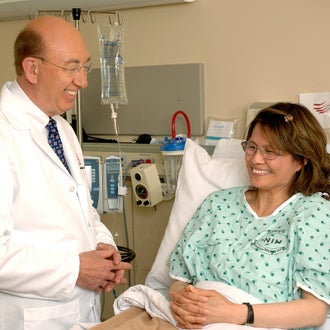Along with the physical changes, can cancer also affect the thinking and emotions of the patient?"
Cancer causes physical changes, but can also affect emotions and thinking. People diagnosed with cancer have to deal with issues and situations that can be frightening and challenging. A cancer diagnosis can trigger a range of emotions including sadness, anxiety and depression. These emotional responses are normal and, after a period of adjustment, for many they pass. If patients experience these feelings, it is a good idea to seek help. Sometimes talking with family and friends is enough, or a support group can be helpful to connect with others who have had similar experiences. Others find talking to a psychologist or social worker helpful; you can ask your treatment team or doctor about referral.
Research has shown that in some people, treatment can be a factor. “Chemo-brain” has been described by patients as foggy, clouded or slow thinking – not being able to juggle things. Emotional and cognitive changes can also be related to changes in appetite, weight, sleeping patterns and energy levels during treatment.
We can’t predict who will develop cognitive changes and we can’t prevent them from occurring. Research is now focused on rehabilitation for the brain after treatment. Sometimes managing physical symptoms will help with emotional or cognitive changes. Some feelings of sadness, anxiety, depression or cognitive changes only become troubling after treatment. If you do experience any of these feelings after your treatment, talk to your doctor.

